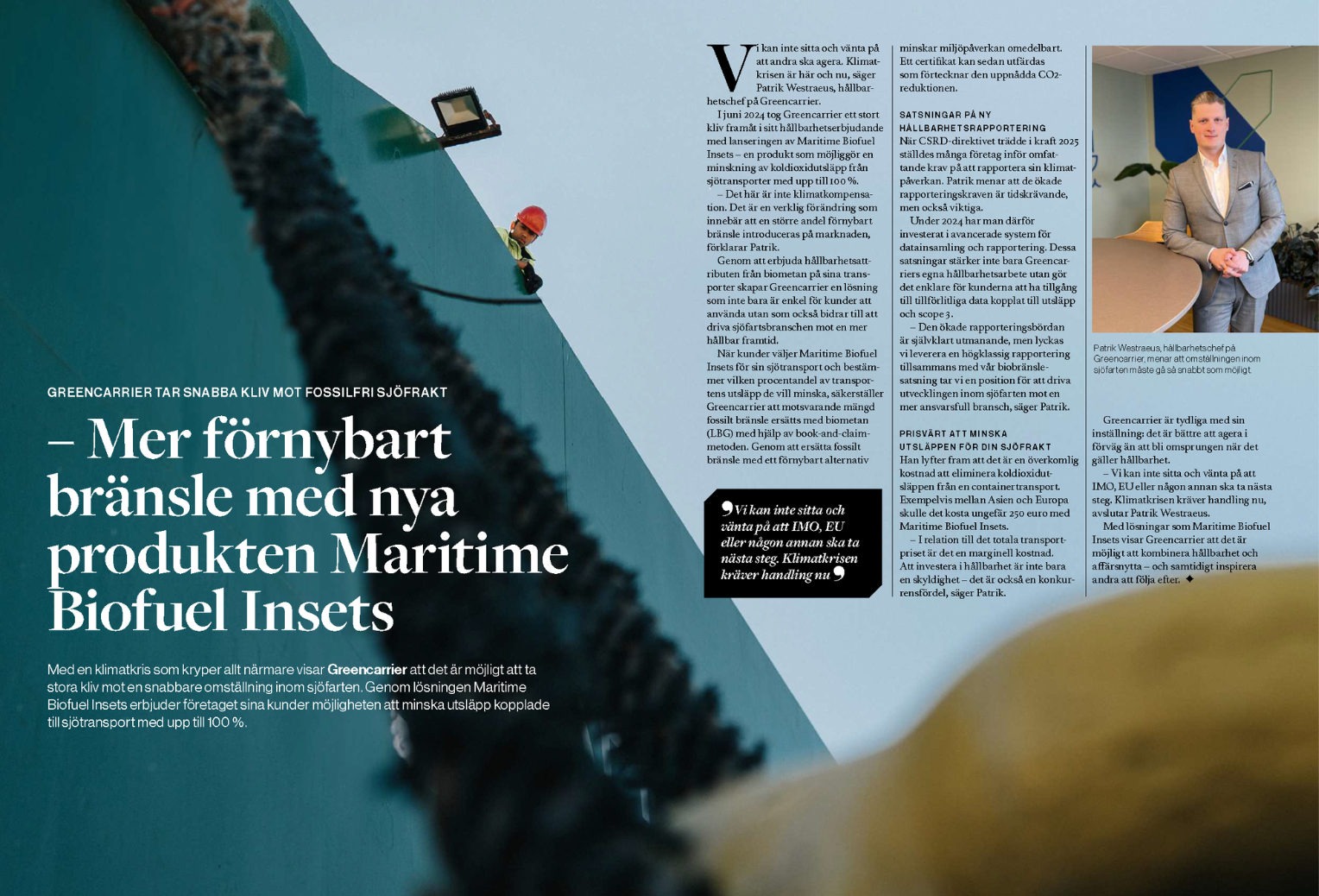Why fossil-free shipping matters
The shipping industry’s climate impact
Maritime transport currently accounts for around 3% of global greenhouse gas emissions, largely due to its reliance on fossil fuels. While sea freight remains one of the most efficient modes of transport per tonne-kilometre, its total emissions are still significant – and expected to grow unless action is taken.
Shifting to low-emission and fossil-free transport alternatives is key to meeting international climate goals and reducing the sector’s environmental footprint.
Regulatory pressure is increasing
Both the EU and the International Maritime Organization (IMO) are introducing stricter regulations on maritime emissions. Initiatives like the EU ETS (Emissions Trading System) will also place a cost on carbon, making fossil-heavy freight more expensive.
Choosing fossil-free sea freight is not just good for the planet – it’s also a future-proof logistics decision.
Helping businesses achieve their climate targets
More companies are setting science-based climate targets and reporting on Scope 3 emissions, which include emissions from logistics partners. By choosing fossil-free shipping, businesses can significantly reduce their Scope 3 CO2 footprint – and strengthen their sustainability credentials in the process.
The future of shipping
Fossil-free sea freight is a critical component of the transition in global trade. As the industry evolves, solutions such as maritime biofuel will become even more central in reducing emissions and shaping the future of logistics.
At Greencarrier, our fossil-free sea freight offering is part of a long-term commitment to sustainable shipping – helping customers lower their climate impact without sacrificing performance or reliability. By using maritime biofuel insets, we enable emission reductions within existing logistics setups, without the need for operational changes.
Looking to make your next shipment fossil-free? Head here to read more and book.





